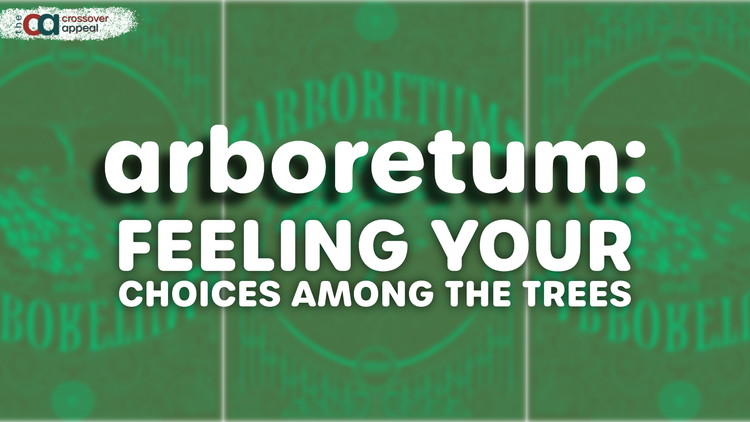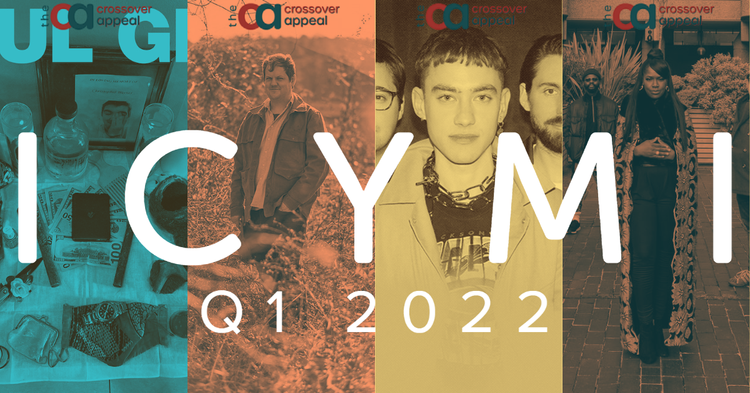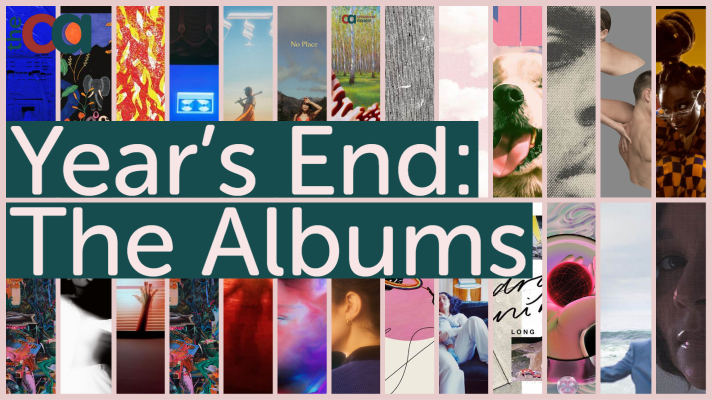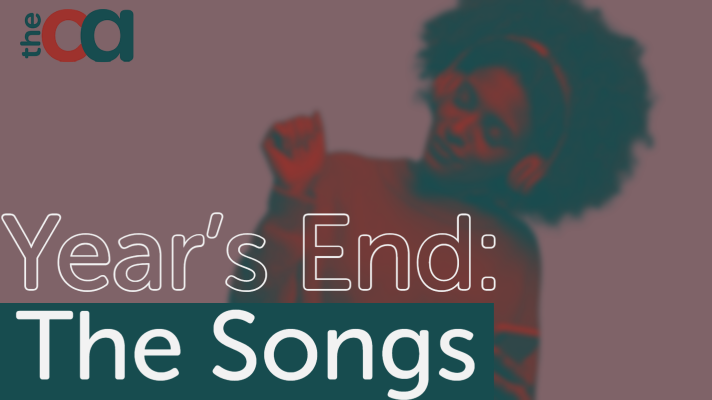The Cross Section: Noah Gundersen

In the Cross Section, a recurring series at the Crossover Appeal, we introduce you to an artist by walking you through their ten most essential tracks. This week, we're looking at Washington's own Noah Gundersen.
Something about that singer/songwriter space makes it hard for an artist to stand out. Especially now, when recording and distributing music is more accessible to more artists than it's ever been, if you're decent enough with an acoustic guitar and have a listenable voice, chances are you'll find someone willing to drop your catchiest tune into a playlist.
Noah Gundersen hasn't exactly flown that far beneath the radar - he won a Grammy after all in 2014 for his work on the FX show, Sons of Anarchy. But outside of one or two breakthroughs to the mainstream, most of his music has lingered off to the side of the limelight, playing at smaller venues to smaller, dedicated audiences. In the 15+ years he's been active, Noah has released 14 studio albums all while touring constantly. Yet, he's strangely hard to place among his contemporaries. He blends the delicate lyricism and vocal talent of his sometimes collaborator Phoebe Bridgers with the sarcastic intellect of Father John Misty, but his best work feels more direct than either one. That's because ultimately, Noah Gundersen's music has a strong pop sensibility. The choruses are hummable, the soundscapes are wide and approachable, and his range is comfortable for singing along. The perfect Noah Gundersen songs are easy listening until barbs from his vivid poetry poke through and root you, suddenly, in a sadness thought you had buried.
Over the course of his career, Gundersen's music has explored alcoholism, addiction, religious trauma, family dysfunction, and self destruction, but it has also lingered wherever it finds a moment's rest. And while the core of his songwriting has stayed intact for years, Gundersen's palate of sounds has expanded and shifted, drawing from folk, roots rock, Americana, gospel, new wave, and even Christian contemporary music. It's a deep catalog of songs from a long, rambling career, and with his recent release of A Pillar of Salt, now's as good a time as any to get to know Noah Gundersen.
Atlantis (2021) - A Pillar of Salt
The lead single from his latest album, "Atlantis" sees Gundersen doing something rare indeed - mingling his honey-sweet voice with another's, and in this case, that voice belongs to the inimitable Phoebe Bridgers. It leads with an impossible poetic image of possessive yearning before tumbling out into verses that grow more concrete until an aching story of loss and broken love emerges. Gundersen and Bridgers sound wonderful together, but the recording and the harmonies keep their voices at a distance - they remain wholly distinct, sad and hazy, as if each of them can only barely remember the other. Throw in an outro reminiscent of classic Phil Collins and a return to the opening poetic image, transformed from violent desperation into open-hearted grief, and you've got an instant classic.
Jesus, Jesus (2009) - Saints & Liars
The earnestness of this track from early in Gundersen's career makes it a tough one for me to revisit. For those of us who grew up in American Evangelicalism, the sharpness of Noah's lyrics - here a prayerful, angry request for accountability to an absent God - match perfectly with his high, plaintive singing and simple finger-picking. But it's more than a song about losing your religion. It's a paranoid, terrified, and regretful snapshot of millennial adulthood, capturing that sense of dawning hopelessness just as things were supposed to be looking up. If you watched Bo Burnham's Inside, "Jesus, Jesus" is Burnham's "That Funny Feeling" but without the cynicism or joking; just pure grief. And the worst thing is, you can tell this song arrives with some hope left that things will turn around, a sentiment that gradually dissipates across Gundersen's career, maturing this song into one of his bitterest.
First Defeat (2014) - Ledges
Ledges is the album where Gundersen's sonic palette really came into its own, and "First Defeat" is a beautiful example of that maturation. The guitar and piano are full and warm, and Gundersen's voice is quiet and expressive before exploding into huge, soaring cries on the final chorus. Lyrically, this song teeters right at the moment of disaster, as so many of Gundersen's best tracks do, announcing the end of a relationship like a statement of intent. One of Gundersen's thematic signatures is the slow appreciation of the death of a good thing, and that's exactly the hollow this song sleeps in.
Fire (2011) - Family
This was the first of Noah's songs I loved. A brilliant, rhythmic folk tune that showcases his talents as a gothic storyteller, summoning up images of blood red stained glass and moonlit women. It presents Gundersen as the artist-as-wanderer, a well worn trope, for sure, but executed so colorfully here. The wanderlust he's working with here is the flame to which the moth flies, or the forest fire that pursues you even to the desert. Noah's vocals soar to new, pure heights as he sings about looking for freedom on the road and failing to find it, and his sister Abby's performance is the perfect supplement. "Fire" is as essential a contribution to contemporary Americana as any other song from the last twenty years.
Empty From The Start (2015) - Carry the Ghost
This record saw Gundersen really beginning to expand his sounds past where they'd gone before. Even on this cut, which compared to other tracks on Carry the Ghost is quite pared back, you can tell the room has widened to include more musical and lyrical influences. In many ways, "Empty From The Start" is the dire sequel to "Jesus, Jesus", sounding like one side of an argument with your Christian college girlfriend who needs you to stay in the faith. There are a million resonances across Gundersen's career with the burgeoning "exvangelical" movement, and while this song is certainly honest about the wreckage left behind by religious trauma, it also clears a lot of space for what can come after. It's a beautiful, delicate document to keeping hold of yourself even when the bottom of everything falls out.
BAD DESIRE (2017) - WHITE NOISE
There's a pleasingly commercial note to this track, which is not to say Gundersen loses his close-mic'd intimacy or authenticity in the process. It's simply that with "BAD DESIRE", Gundersen is making his clearest contribution to the American pop rock tradition. Huge choruses, a full band of instrumentation, and well trodden themes of heartbreak and keening regret. While it may not be the highest note in Gundersen's catalog, it's an important one that sees him baring his aspirations as a songwriter and musician.
Watermelon (2019) - Lover
Noah bolsters his acoustic songwriting here with lush electronic production, a subtle touch that draws this song about being an unlovable wastrel into a shimmering spotlight. Intimate, soft, and worried, "Watermelon" is Gundersen, strangely, at his most sensual. The links between regret, affection, attraction, and sex are rendered extraordinarily visible in the lyrical presentation:
"This hole in my chest / it won't let me rest / so I'm trying my best / to fill it with you."
It's one of Noah's most beautifully written songs and deserves many, many more ears than it's gotten.
Smells Like Teen Spirit (2014) - Twenty-Something
Covering other people's work is always a risk, especially when the song you're covering is as well-established and beloved as this one. The job, as I see it, is to draw something new out of the original, and to prove why the world needed this new rendition, a difficult task for a song than even its original authors, Nirvana, didn't put on their own MTV Unplugged tracklist. And yet, Noah's done something special with this track that spotlights exactly what he's so good at - producing a teetering vulnerability, a sense of imminent collapse. In his hands this raging anthem to teenage disillusionment becomes a quiet meditation on the loosening threads of our social fabric, a memory of resignation, a hymn for giving up. As the song goes on, you can here Noah lose himself in the song, beginning to sing off the beat, his voice wobbling on the melody, his timbre harshening as if the spirit of Cobain has briefly touched down in the back of his throat.
Family (2011) - Family
In some ways, this track feels like the foundation of Noah's career. It's a spare, full-throated story about a broken relationship that keeps chugging along because it has to. The storytelling is full of character, summoning up anxiety and pity in the same breath. Chemical dependencies and filial attachment swirl around each other here like they do in a Coen film, and like those films too it ends with an enigmatic question, asked to no one: "Am I just a spark?" It's a concentrated bundle of feeling, claustrophobic and bleary, that will probably make you feel better about your family this holiday season.
Poor Man's Son, from Ledges
This is it. This is the quintessential Noah Gundersen song. Which is not to say it's typical of his catalog. No, this song opens without instrumentation at all. Just Noah's voice digging deep and soaring high before three more voices come alongside his and, unlike in "Atlantis" actually harmonize. The effect is that Noah's distinctive tone seems to disappear and reappear through that opening verse and refrain, which hold in acapella until the second chorus. It's unmistakably church music, gospel music, a spiritual of the Pacific Northwest. When he sings that he has a "feeling like knowing everyone here will some day die", you likely have that feeling too. It's also atypical of Noah's catalog in that the lyrics feel open and un-specific, as though it's been written to be sung by a congregation, not by one heartbroken, lonely man. And when the song comes to its raucous conclusion, Noah and his vocal partners shouting and trilling away as the whole thing comes to its climax, well, it's the rapture. It's as if right in the middle of a career built on restrained desperation, grief, and loss, Noah found a way to let it all tear out of him at once.
I hope you enjoyed this introduction to Noah Gundersen and his work. Reach out to me at thecrossoverappeal (at) gmail (dot) com if you have any suggestions on artists you'd like to see get the Cross Section treatment. Below is a Spotify playlist containing all the songs from this edition of the Cross Section. Happy listening!






Member discussion